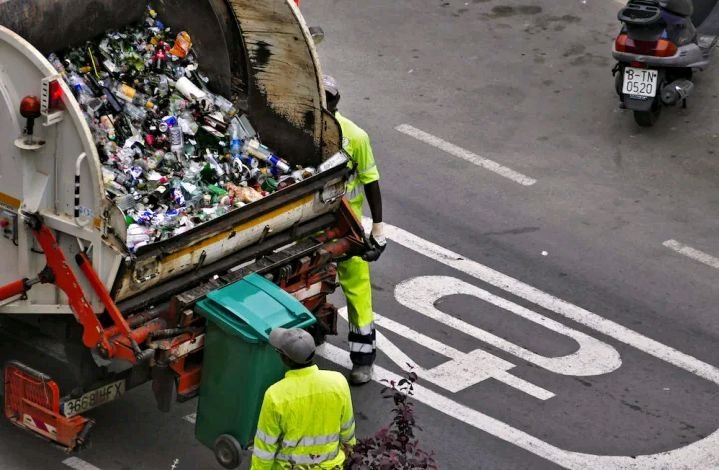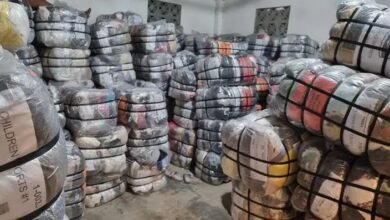Requirements And Cost Of Starting A Garbage Collection Business In Kenya

The garbage collection business in Kenya revolves around providing professional waste management services to residential, commercial, and industrial establishments. It involves the collection, transportation, and disposal of waste materials, ensuring proper sanitation and environmental preservation. This industry plays a vital role in maintaining public health, preventing pollution, and preserving the natural beauty of Kenya’s landscapes.
Starting a garbage collection business not only addresses a critical environmental concern but also presents an avenue for economic growth and sustainable development.
The garbage collection business typically involves the following key activities:
1. Collection: Garbage collectors are responsible for collecting waste from various sources, including households, offices, markets, and public spaces. This can involve door-to-door collection or setting up designated collection points where individuals or businesses can deposit their waste.
2. Transportation: After the collection, the waste needs to be transported to appropriate disposal sites such as landfills or recycling centers. Garbage collection businesses use specialized vehicles like garbage trucks to ensure efficient and timely transportation of waste.
3. Recycling And Segregation: In recent years, there has been a growing emphasis on waste recycling and segregation in Kenya. Many garbage collection businesses have incorporated recycling facilities or partnered with recycling companies to extract value from certain types of waste, such as plastic, paper, or glass. This not only reduces the amount of waste that ends up in landfills but also contributes to a more sustainable and circular economy.
4. Disposal: For non-recyclable waste, proper disposal is crucial to prevent environmental pollution. Garbage collection businesses ensure that waste is disposed of in compliance with local regulations and standards, reducing the impact on ecosystems and public health.
Remember, the garbage collection business is not only about waste management; it is about actively participating in building a cleaner, healthier, and more sustainable future for Kenya.
In the following Frequently Asked Questions in this article on how to start a garbage collection business, you will get to know the requirements and cost of starting a garbage collection business in Kenya.
What Permits Or Licenses Are Needed To Operate A Garbage Collection Business In Kenya?
Before diving into the garbage collection business in Kenya, it is important to understand the permits and licenses required to operate legally. To commence a garbage collection business, you need to obtain the following permits and licenses:
1. Business Registration: Register your business with the Registrar of Companies in Kenya as a limited liability company or sole proprietorship, depending on your preferred business structure.
2. Environmental Impact Assessment License: This license ensures compliance with environmental regulations and assesses the potential impact of your waste collection operations on the environment.
3. Waste Collection Permit: Obtain a waste collection permit from the National Environment Management Authority (NEMA). This permit authorizes the collection, transportation, and disposal of waste within specific areas.
How Can I Register A Garbage Collection Business In Kenya?
To register your garbage collection business in Kenya, you have to follow these steps:
- Choose A Business Name: Select a unique and catchy name that reflects the nature of your garbage collection business.
- Business Structure: Decide on the appropriate legal structure for your business, such as a sole proprietorship, partnership, or limited liability company.
- Business Registration: Visit the Huduma Centre or the e-Citizen online portal to register your business with the Registrar of Companies. Submit the necessary documents, including the completed registration forms, proof of identity, and the required registration fees.
- Tax Registration: Register for tax purposes by obtaining a Personal Identification Number (PIN) from the Kenya Revenue Authority (KRA). This step ensures compliance with tax regulations.
What Are The Necessary Steps To Develop A Business Plan For A Garbage Collection Business In Kenya?
Developing a comprehensive business plan is important for the success of your garbage collection business. Follow these steps to create an effective business plan:
- Executive Summary: Provide an overview of your business, including its mission, objectives, and key highlights.
- Company Description: Describe your garbage collection business, its structure, target market, and competitive advantage.
- Market Research: Conduct thorough market research to identify potential customers, competitors, and market trends.
- Services And Pricing: Define the range of services your business will offer, along with the pricing structure.
- Marketing And Sales Strategy: Outline your marketing and sales approach, including promotional activities and customer acquisition strategies.
- Operations And Management: Explain the day-to-day operations of your business and the organizational structure.
- Financial Projections: Create financial projections, including income statements, cash flow statements, and balance sheets, to demonstrate the financial viability of your business.
- Risk Analysis: Identify potential risks and challenges associated with the garbage collection industry and outline mitigation strategies.
What Type Of Equipment Are Needed To Start A Garbage Collection Business In Kenya?
To effectively start a garbage collection business in Kenya, you will need the following equipment:
1. Garbage Collection Trucks: Acquire a fleet of suitable garbage collection trucks depending on the scale of your operations. These trucks should be equipped with hydraulic systems for easy waste loading and unloading.
2. Dumpsters And Bins: Invest in durable and appropriate-sized dumpsters and bins to facilitate waste collection from residential, commercial, and industrial areas.
3. Protective Gear: Provide your staff with personal protective equipment (PPE) such as gloves, masks, and overalls to ensure their safety while handling waste.
4. Sorting And Segregation Equipment: Purchase equipment like waste sorting machines, conveyor belts, and recycling bins to facilitate proper waste segregation and recycling processes.
5. Compactors And Crushers: Depending on your business model, consider investing in waste compactors and crushers to reduce the volume of collected waste for efficient transportation and disposal.
6. GPS And Communication Devices: Equip your trucks with GPS systems and communication devices to track routes, optimize collection schedules, and ensure effective coordination between drivers and the central office.
What Are The Legal And Regulatory Considerations For A Garbage Collection Business In Kenya?
Running a garbage collection business in Kenya involves compliance with various legal and regulatory considerations, including:
1. Waste Management Regulations: Get knowledge about the Waste Management Regulations provided by NEMA, which outline waste collection, transportation, and disposal standards.
2. Occupational Health And Safety Regulations: Adhere to occupational health and safety regulations to ensure a safe working environment for your employees.
3. Vehicle And Road Transport Regulations: Comply with the traffic regulations and licensing requirements for your garbage collection trucks, including regular inspections and proper documentation.
4. Tax Obligations: Fulfill your tax obligations by maintaining accurate records, submitting tax returns, and paying the relevant taxes to the Kenya Revenue Authority.
5. Environmental Conservation: Promote environmental conservation by implementing sustainable waste management practices, such as recycling and proper disposal methods.
What Are The Challenges And Risks In The Garbage Collection Industry?
The garbage collection industry in Kenya presents several challenges and risks that entrepreneurs should be aware of. These include:
1. Lack Of Infrastructure: Insufficient waste management infrastructure, including landfill sites and recycling facilities, can hinder efficient waste disposal and recycling processes.
2. Informal Waste Collection Sector: The presence of informal waste collectors may lead to competition and potential conflicts over waste collection territories.
3. Public Awareness And Behavior: Changing public attitudes and promoting responsible waste disposal behavior pose ongoing challenges in achieving effective waste management.
4. Financial Sustainability: Ensuring the financial sustainability of your business, particularly in the initial stages, can be challenging due to high equipment and operational costs.
5. Government Regulations And Compliance: Adhering to constantly evolving waste management regulations and obtaining necessary permits and licenses can be time-consuming and complex.
What Are The Steps To Manage And Dispose Of Collected Waste In An Environmentally Friendly Manner?
To manage and dispose of collected waste in an environmentally friendly manner in Kenya, follow these steps:
1. Waste Segregation: Implement proper waste segregation practices at the source to separate recyclable materials from non-recyclable waste.
2. Recycling And Composting: Establish partnerships with recycling facilities and composting centers to ensure that recyclable materials are properly processed and organic waste is converted into compost.
3. Landfill Management: If landfill disposal is necessary, ensure that it complies with environmental regulations, such as proper lining, leachate management, and methane gas extraction.
4. Hazardous Waste Disposal: Develop protocols for the safe handling and disposal of hazardous waste materials, ensuring compliance with hazardous waste regulations.
5. Public Education And Awareness: Conduct awareness campaigns to educate the public on the importance of responsible waste disposal practices and promote recycling initiatives.
How Much Does It Cost To Start A Garbage Collection Business In Kenya?
The estimated cost of starting a garbage collection business in Kenya can range from KES 850,000 to KES 5.5 million or more, depending on the scale and specific requirements of your operation.
What Are The Requirements To Start A Garbage Collection Business In Kenya?
To start a garbage collection business in Kenya, you need to fulfill several requirements, which include:
1. Business Registration: You have to register your business with the Registrar of Companies and obtain the necessary registration documents.
2. Permits And Licenses: Obtain the relevant permits and licenses from NEMA for waste collection, as well as any other specific permits required by local authorities.
3. Equipment And Vehicles: Acquire suitable garbage collection trucks, dumpsters, bins, and other necessary equipment to facilitate waste collection and disposal.
4. Skilled Workforce: Hire and train a competent workforce capable of handling waste collection, sorting, and disposal tasks.
5. Compliance With Regulations: Ensure compliance with waste management regulations, occupational health and safety standards, and environmental conservation requirements.
6. Waste Disposal Partnerships: Establish partnerships with recycling facilities, composting centers, and landfill operators for proper waste disposal.
7. Insurance Coverage: Obtain appropriate insurance coverage to protect your business, vehicles, and employees in case of accidents or liabilities.









